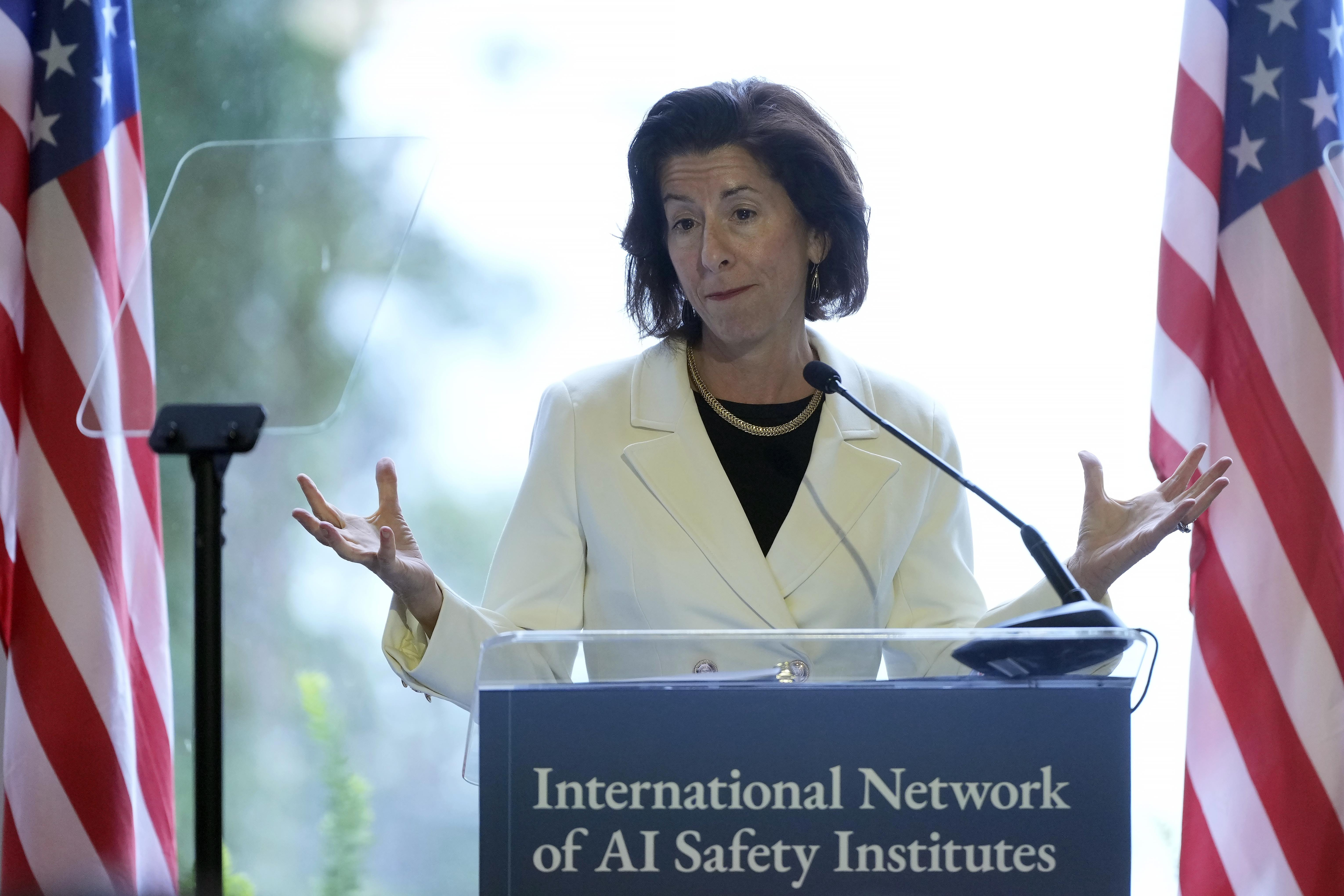Gina Raimondo, the former U.S. Commerce Secretary and Rhode Island Governor, has been a transformative force in American politics, implementing policies that prioritize economic growth and fairness. Known for her innovative business strategies, she has championed significant initiatives such as raising the state minimum wage and cutting taxes annually during her time in office. As a key architect of the Infrastructure Investment and Jobs Act, Raimondo has focused on bridging the economic divide and ensuring that opportunities are accessible to all Americans. Her approach not only emphasizes growth but also reflects a deep commitment to social equity, a hallmark of her policies. Through her leadership, Gina Raimondo has made a substantial economic impact, paving the way for sustainable change in the U.S.
Gina Raimondo epitomizes the dynamic leadership needed in contemporary governance, especially in relation to economic revitalization. Her strategic initiatives, including the advocacy for higher minimum wage standards and infrastructure advancements, outline her commitment to fostering inclusive growth. The former Rhode Island governor’s business philosophies are evident in her role within the Biden administration, particularly through the implementation of the Infrastructure Investment Act. With an eye on the future, her policies not only aim to stimulate economic progress but also to create equitable opportunities for all citizens. This multifaceted approach highlights the necessity of visionary leadership in tackling the pressing economic challenges of today.
Gina Raimondo’s Approach to Economic Change
Gina Raimondo’s tenure as Governor of Rhode Island showcases her commitment to progressive economic policies that prioritize both growth and fairness. Under her leadership, the state made significant strides, including annual tax cuts and an increase in the state minimum wage. Raimondo’s strategic focus on cutting regulations by 30% facilitated the establishment of a more conducive environment for businesses to thrive, ultimately fostering job creation and stimulating economic growth. These policies have not only contributed to the local economy but have also set a precedent for other states to follow, demonstrating that ambitious economic changes can be achieved thoughtfully.
Moreover, Raimondo’s emphasis on accessible education through initiatives like making community college tuition-free reflects her understanding of the importance of education in economic empowerment. She believes that investing in education is crucial for creating a well-equipped workforce that can adapt to the ever-changing economic landscape. This holistic approach to economic policy, integrating minimum wage increases with educational reforms, exemplifies her belief that positive change must encompass multiple facets of society to be truly effective.
Frequently Asked Questions
What are the key policies implemented by Gina Raimondo during her tenure as governor of Rhode Island?
During her tenure as governor of Rhode Island, Gina Raimondo implemented several key policies aimed at improving the state’s economy. She cut taxes yearly, raised the minimum wage, and made community college tuition-free. Additionally, Raimondo reduced state regulations by 30%, demonstrating her commitment to fostering a more business-friendly environment.
How did Gina Raimondo’s policies impact the minimum wage in Rhode Island?
Gina Raimondo was a strong advocate for increasing the minimum wage in Rhode Island. Under her leadership, the state saw a significant hike in minimum wage rates as part of her broader economic strategy to improve the financial stability of low-income workers and to ensure that workers’ rights were upheld.
What was Gina Raimondo’s role in the Infrastructure Investment and Jobs Act?
Gina Raimondo played a crucial role in shaping the Biden administration’s Infrastructure Investment and Jobs Act. Her efforts focused on enhancing infrastructure across the country to create jobs, improve transportation, and modernize the nation’s facilities, emphasizing the importance of building a competitive economy.
What business strategies did Gina Raimondo promote during her time as U.S. Commerce Secretary?
As U.S. Commerce Secretary, Gina Raimondo promoted business strategies that included fostering international partnerships, particularly in Asia, to address supply chain complexities. She was instrumental in supporting the CHIPs and Science Act, which aimed at boosting domestic production of critical semiconductors crucial for national security and economic stability.
What lessons did Gina Raimondo learn from her political career regarding economic policies?
Throughout her political career, Gina Raimondo learned that effective economic policies require a balance of bold actions and careful execution. She emphasized the need for fiscal responsibility and the importance of engaging with the private sector to achieve sustainable growth, ensuring that programs designed for economic improvement do not harm everyday citizens.
| Key Points |
|---|
| Gina Raimondo emphasizes that to create positive change, one must be willing to disrupt the status quo without harming individuals in the process. |
| During her tenure as Rhode Island Governor, she implemented several reforms including tax cuts, minimum wage increases, and making community college free, while also reducing regulations by 30%. |
| Raimondo believes that effective governance requires understanding complexities, citing her work on supply chains during COVID-19. |
| She champions the significance of international relationships for supply chain security, stressing that America must collaborate with allies. |
| The CHIPs and Science Act aims to boost domestic semiconductor production, with an emphasis on national security implications. |
| Raimondo points out that fiscal responsibility was critical in the Biden administration’s policies, requiring a ratio of private-sector investment to public spending. |
| She acknowledges the difficulties of governance in a closely divided Congress and defends supports for the Biden administration’s fiscal measures amidst inflation concerns. |
Summary
Gina Raimondo’s insights on governance and economic reform highlight a balanced approach to driving positive change. Her experience as the former U.S. Commerce Secretary underscores her commitment to creating fair opportunities for all Americans while simultaneously boosting national security and economic competitiveness. By actively engaging with international partners and emphasizing domestic production, Raimondo illustrates the critical intersections of policy, economy, and social responsibility. Her reflections on navigating political complexities offer valuable lessons for current and future leaders in pursuing effective governance.
